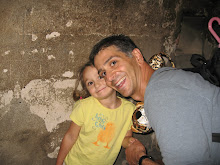The real problem facing the humanities is the difficulty of seeing its practical benefits. What purpose does it serve, people wonder, to study literature?
Recently, however, a public event occurred that succinctly illustrates the very real value of the humanities to society. In late October 2008, following the failure of several giant financial institutions, former Federal Reserve Chairman Alan Greenspan addressed Congress. In a highly revealing statement, Greenspan expressed astonishment at the short-sightedness of the banks. He said: “Those of us who have looked to the self-interest of lending institutions to protect shareholder’s equity—myself especially—are in a state of shocked disbelief.”
Alan Greenspan is a highly thoughtful and well-educated man, of course. But his statement reveals a profound flaw in his worldview. As an economist, he applies principles of the market to human behavior, expecting that the collective desire for maximum profit would induce self-control. His admission of shock illustrates that in formulating his theories Greenspan ignored the humanities. In short, he didn’t read Dante.
The great Italian poet Dante portrays the afterlife in his masterpiece The Divine Comedy. In the most famous portion, hell, he systematizes all human evil. He broadly divides the sins into three headings: fraud, violence, and incontinentia or lack of self control. The last category, incontinentia, is comprised of lust, gluttony, and greed. While fraud represents the use of intellect for perverse ends, and violence destroys the bonds of human brotherhood, the sins of incontinentia are simply natural drives left unchecked.
At the outset of his work Dante allegorizes incontinentia with the image of a she-wolf: she is frighteningly skinny, but after eating she is only hungrier. Through the symbol of the she-wolf Dante makes an insightful statement about our natural human impulses. Lust, gluttony and greed are not about reaching a specific goal; they are not desires that disappear once they have been fulfilled. Here, then, is one truth about the human condition that only the humanities can offer.
Why do so many lottery winners end up spending themselves into bankruptcy within a year or two? How much money can possibly be enough? Why do so many people with doting spouses have wandering eyes? Why do restaurants serve ridiculously large proportions, often followed by equally oversized desserts? With his she-wolf, Dante offers a disquieting answer. We human beings delude ourselves that happiness will come once we acquire that one object we want, whether it’s a flashier car, a more attractive lover, or a richer chocolate cake. But we are mistaken. That’s the hellish thing about base desires: the things we want are not really the point. As we attain them, we simply want something else, and the process starts all over again. Like the she-wolf who feels greater hunger after eating, when it comes to sex, food and money, human beings want more as they acquire more.
In a nutshell, had Alan Greenspan, economists and policymakers considered Dante’s dark view of the human heart, they would not feel shock that the banks did not act with self-restraint. Greed, as the film Wall Street reminded us, is the motivating factor in market decisions. But greed is also fundamentally about being out of control, an ever-present hunger that no amount of money, however large, will truly satisfy. Lacking a humanistic element to their worldview, economists like Greenspan never examined the nature of the primary motivation of financial decisions, greed.
So policy was set with the unquestioned belief that uncontrolled greed might result in self-restraint. In the drive to satisfy an insatiable desire, inevitably the leaders of banks behaved irresponsibly. To stave off an even greater crisis Congress then needed to intervene with bail-outs.
And now we have a very specific answer to that age-old question: what are the humanities worth? About $700 billion and counting.
Friday, August 28, 2009
Subscribe to:
Post Comments (Atom)




Fabe, I read that Greenspan was profoundly influenced by the ideology of Ayn Rand. Any surprise there?
ReplyDeleteI don't know what to make of that. It wouldn't surprise me.
ReplyDeleteOn the other hand, he's part of those people who saw the market as fundamentally self-correcting; thus, it was best to leave it alone.
I'm not an economist. But I do believe that there should always be limits. I think the idea that people answer only to themselves (or that nebulous thing we call a "market") is destined for failure.